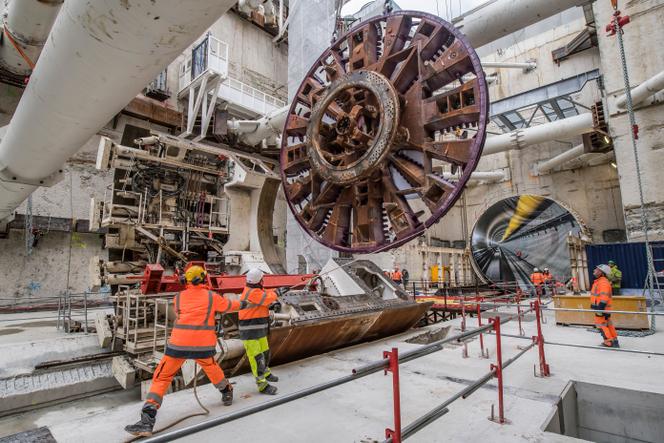


Not a single person was missing from the meeting at 9 am on Monday, December 18. A long and narrow room had been reserved at the headquarters of the Paris 2024 Organizing Committee for the Olympic and Paralympic Games (OCOG) in Saint-Denis, north of Paris. Those who couldn't be there in person could attend remotely. Each person was given a maximum of five minutes to speak. Once the tone had been set by Pierre Cunéo, Paris 2024's director of transport (it's "a real challenge," but "we're confident in our ability (...) to manage the travel of everyday users and of spectators"), each member of the "French national transportation team," gathered for the first time in front of the press, reeled off his or her part.
The next day, Clément Beaune, the French minister for transport, was also keen to speak ahead of the 9th Committee on Transit for the Olympic Games, which he chaired in the afternoon alongside the minister for sport, Amélie Oudéa-Castéra, and the minister for persons with disabilities, Fadila Khattabi. His tone was more measured, but "the commitments have been kept," he assured reporters.
This certainty and collective reassurance, seven months from the opening ceremony, sounded much like a response to the controversy raised a month ago by Paris' Socialist mayor. Regarding the Games, there are "two things we're not going to be ready for," Anne Hidalgo declared on November 22, on the set of the TMC channel's "Quotidien" program. "Transport" and "shelter for homeless people" − the former being a difficulty that Parisians face every day. She didn't deny her share of responsibility ("We're doing all this together, so I also feel involved"), but her outburst stung both Beaune and Valérie Pécresse, the president of the Ile-de-France region (Paris and its suburbs) and of its transit authority, Ile-de-France Mobilités (IDFM). "We'll be ready," Pécresse replied on X the next day.
The challenge is real. Between 800,000 and 1 million extra people are expected to use public transportation every day during this period in France, including 500,000 people in the Paris region (not counting the 200,000 with accreditations). OCOG has also set itself an additional target: to get 100% of spectators to and from the 25 competition sites by public transportation, by bicycle or on foot.
This is a first in the history of the Games, with Paris 2024 aiming to be the "most carbon-free" edition of the modern era. It's "the biggest transportation operation we've ever done in civil engineering (...), the equivalent of 50 matches at the Stade de France every day," said Beaune. In Saint-Denis, at peak times, 60,000 people will need to be transported per hour, or a thousand per minute.
You have 65% of this article left to read. The rest is for subscribers only.
